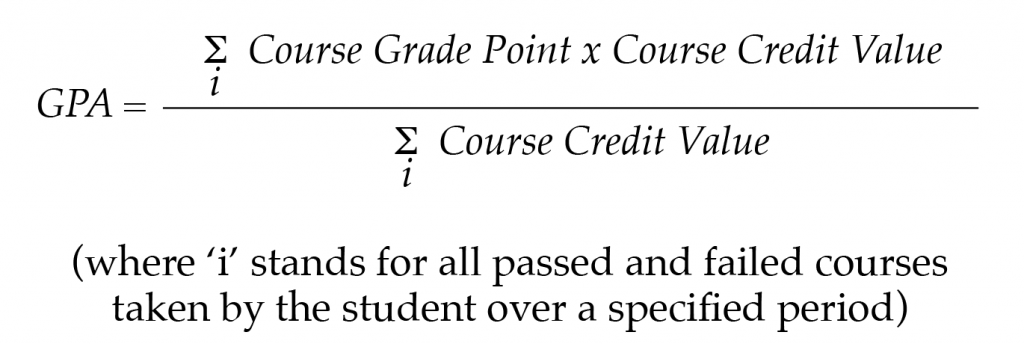Regulations for Taught Postgraduate Curricula 1
(See also General Regulations)
TPG 1 Definitions
For the purpose of regulations and syllabuses for all applicable curricula as specified in these regulations unless otherwise defined —
‘Taught postgraduate qualifications’ in these regulations include taught master’s degrees, postgraduate diplomas, postgraduate certificates, and advanced diplomas.
An ‘academic year’ normally comprises two semesters. The first semester normally commences in September and ends in December, and the second semester normally commences in January and ends in May/June, with the actual dates to be prescribed by the Senate unless otherwise permitted. It includes, if appropriate and normally at the end of each semester, a period during which candidates are assessed. For some curricula, a ‘summer semester’ may be organized in addition to the two semesters.
A ‘summer semester’ normally comprises seven to eight weeks of intensive timetabled teaching and assessment to commence after the end of the second semester assessment period, and to conclude about one week before the start of the next academic year.
The ‘maximum period of registration’ is equivalent to a period which comprises up to two additional years beyond the curriculum’s normative period of study as specified in the curriculum regulations.
‘Taught postgraduate curriculum’ means the entire study requirements for the award of a taught postgraduate qualification.
‘Course’ means a course of study, with a credit value expressed as a number of credit-units as specified in the syllabuses for a curriculum.
‘Capstone experience’ refers to one or more courses or other forms of study within the discipline or field of study which are approved by the Board of the Faculty for the purpose of integrating knowledge and skills acquired, and which are prescribed in the syllabuses of the curriculum.
‘Syllabus’ means courses taught by departments, centres, and schools, offered under a curriculum.
‘Prerequisite’ means a course or a group of courses which candidates must have completed successfully or a requirement which candidates must have fulfilled before being permitted to take the course in question.
‘Corequisite’ means a course which candidates must take in conjunction with the course in question.
‘Credits’ or ‘credit-units’ means the value assigned to each course to indicate its study load relative to the total study load under a curriculum. The study load refers to the hours of student learning activities and experiences, both within and outside the classroom, and includes contact hours and time spent on assessment tasks and examinations. Candidates who satisfactorily complete courses with a credit value earn the credits assigned to these courses.
‘Grade Points’ are standardized measurements of candidates’ academic achievement in courses taken to satisfy the requirements of the curriculum and are expressed as a scale corresponding to the letter grades system prescribed in these regulations.
‘Grade Point Average’ or ‘GPA’ is a numerical measure of a candidate’s academic achievement over a specified period of time. All courses attempted (including failed courses) are counted towards the GPA, except for those which are not graded on the prescribed letter grades and grade points system and such other courses as stipulated in these regulations.Each relevant course attempted (including each failed course) is assigned a numerical value, with all courses carrying equal weighting. This numerical value is the product of grade points earned for the course and the credit value of that course.
The ‘Grade Point Average’ is the sum of these numerical values divided by the total number of credits attempted:

‘Semester Grade Point Average’ or ‘Semester GPA’ is the GPA in respect of all relevant courses attempted by a candidate (including failed courses) during a given semester.
‘Year Grade Point Average’ or ‘Year GPA’ is the GPA in respect of all relevant courses attempted by a candidate (including failed courses) during a given academic year.
‘Cumulative Grade Point Average’ or ‘Cumulative GPA’ is the GPA in respect of all relevant courses attempted by a candidate (including failed courses) at the time of calculation.
‘Assessment’ refers to judgment about the quality and extent to which a student has achieved the stated learning objectives or learning outcomes. It includes all types of assessment activities which allow for such a judgment to be made. For the purpose of interpreting the relevant provisions of the Ordinance and the Statutes and where appropriate, reference to ‘examination’ or ‘examinations’ in the Ordinance and the Statutes shall include and cover all forms of ‘assessment’ and its related processes.
A ‘transcript’ refers to a transcript of the record of study of a candidate, issued by the Registry of the University.
TPG 2 Admission requirements
To be eligible for admission to the courses leading to a taught postgraduate qualification, a candidate:
(a) shall comply with the General Regulations;
(b) shall hold a Bachelor’s degree of this University or a qualification of equivalent standard from this University or another comparable institution accepted for this purpose;
(c) shall satisfy any other admission requirements which may be prescribed from time to time for the relevant curriculum; and
(d) for a candidate who is seeking admission on the basis of a qualification from a university or comparable institution outside Hong Kong of which the language of teaching and/or examination is not English, shall satisfy the University English language requirement applicable to higher degrees as prescribed under General Regulation G2(b).
An application for exemption from the above requirements shall be considered on a case by case basis.
TPG 3 Advanced standing
Advanced Standing may be granted to candidates in recognition of studies completed successfully before admission to the curriculum. Candidates who are awarded Advanced Standing will not be granted any further credit transfer for those studies for which Advanced Standing has been granted. The amount of credits to be granted for Advanced Standing shall be determined by the Board of the Faculty, in accordance with the following principles:
(a) a candidate may be granted a total of not more than 20% of the total credits normally required under a curriculum for Advanced Standing unless otherwise approved by the Senate; and
(b) credits granted for Advanced Standing shall not normally be included in the calculation of the GPA unless permitted by the Board of the Faculty but will be recorded on the transcript of the candidate.
TPG 4 Period of study
The period of study of the curriculum shall be specified in the regulations governing the curriculum. To be eligible for award of the taught postgraduate qualification, a candidate shall fulfill all curriculum requirements within the maximum period of registration, unless otherwise permitted or required by the Board of the Faculty.
TPG 5 Progression in curriculum
(a) Candidates shall normally be required to undertake a combination of courses and study requirements as prescribed in the curriculum regulations and syllabuses, and in the manner as specified therein, unless otherwise permitted or required by the Board of the Faculty.
(b) Candidates may, with the approval of the Board of the Faculty, transfer credits for courses completed at other institutions during their candidature. The number of transferred credits may be recorded in the transcript of the candidate, but the results of courses completed at other institutions shall not be included in the calculation of the GPA. The combined total number of credits to be granted for Advanced Standing and credit transfer shall not exceed half of the total credits normally required under the curricula of the candidates during their candidature at the University.
(c) Unless otherwise permitted by the Board of the Faculty, candidates shall be recommended for discontinuation of their studies if they have:
(i) failed to satisfy the examiners in a manner which in accordance with the curriculum regulations shall lead to a recommendation for discontinuation of studies, or
(ii) exceeded the maximum period of registration specified in the regulations of the curriculum.
TPG 6 Requirements for graduation
To be eligible for admission to the taught postgraduate qualification, candidates shall fulfill the requirements prescribed in the regulations and syllabuses governing the curriculum within the maximum period of registration, which in the case of a taught master’s degree shall normally include the successful completion of a capstone experience as specified in the syllabuses of the curriculum.
TPG 7 Exemption
Candidates may be exempted, with or without special conditions attached, from the requirement prescribed in the regulations and syllabuses governing the curriculum with the approval of the Board of the Faculty, except in the case of a capstone experience. Approval for exemption of a capstone experience may be granted only by the Senate with good reasons. Candidates who are so exempted must replace the number of exempted credits with courses of the same credit value.
TPG 8 Assessment
(a) Candidates shall be assessed for each of the courses for which they have registered, and assessment may be conducted in any combination of continuous assessment of coursework, written examinations and/or any other assessable activities. Only passed courses will earn credits.
(b) Candidates shall not be permitted to repeat a course for which they have received a passing grade for the purpose of upgrading.
(c) Candidates are required to make up for failed courses in the following manner as prescribed in the curriculum regulations:
(i) undergoing re-assessment/re-examination in the failed course to be held no later than the end of the following semester (not including the summer semester); or
(ii) re-submitting failed coursework, without having to repeat the same course of instruction; or
(iii) repeating the failed course by undergoing instruction and satisfying the assessments; or
(iv) for elective courses, taking another course in lieu and satisfying the assessment requirements.
(d) There shall be no appeal against the results of examinations and all other forms of assessment.
TPG 9 Grading systems
Individual taught postgraduate courses shall be graded according to one of the following grading systems as determined by the Board of Examiners:
(a) Letter grades, their standards and the grade points for assessment as follows:
| Grade | Standard | Grade Point |
|---|---|---|
| A+ | Excellent | 4.3 |
| A | 4.0 | |
| A- | 3.7 | |
| B+ | Good | 3.3 |
| B | 3.0 | |
| B- | 2.7 | |
| C+ | Satisfactory | 2.3 |
| C | 2.0 | |
| C- | 1.7 | |
| D+ | Pass | 1.3 |
| D | 1.0 | |
| F | Fail | 0 |
or
(b) ‘Distinction’, ‘Pass’ or ‘Fail’, or
(c) ‘Pass’ or ‘Fail’.
Courses which are graded according to (b) and/or (c) above will not be included in the calculation of the GPA.
TPG 10 Classification of awards
On successful completion of the curriculum, candidates who have shown exceptional merit may be awarded a mark of distinction in accordance with the curriculum regulations, where applicable.
These regulations are applicable to candidates admitted from 2016–2017 onwards to the taught postgraduate curricula. Reference in these regulations to the powers of the Boards of Faculties shall be applicable to Senate Boards of Studies which administer taught postgraduate curricula.


























